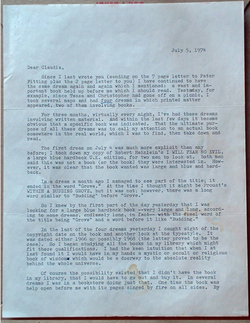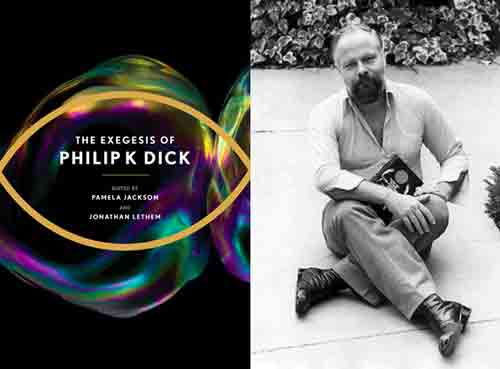December 3, 2012
Who is Claudia Bush?


A few notes regarding my latest audiobook adventures:
Like Abraham Lincoln: A Life and The Power Broker: Robert Moses and the Fall of New York, my latest audiobook adventure is a huge multivolume of an immersion into another epic topic.
Via Audible, The Exegesis of Philip K. Dick. As per my recent visit to Leibniz-land, Gary Geck's Neo-Platonic thread led me to PKD's Exegesis. (Another GG fun fact: Leibniz actually did propose an idea for a theme park, interesting, right?)
PKD was endowed with a uniquely acute sensibility and capacity to isolate and process those subtle subjective psychological dissonances which occur from time to time in life (and everyone should be familiar with this, but few isolate and analyze these feelings), sensations such as deja-vu, dreams, for example, and he uses a vast knowledge base (which curiously the foundation of which was the encyclopedia Britannica and Paul Edwards?s eight volume ?Encyclopedia of Philosophy?, see this) to roughly weave strands of rationality and imagination in the service of art, braiding story telling architectures.
I listen to audiobooks and podcasts as I ride my commute to the studio and there was a particular passage where I had to pull over to rewind -twice- and replay the section where he was revealing to Claudia Bush, his creative process. He was explicit and open and succinct. He was showing her how he ported his life (and this is the sensibility thing: at the base of it all was a hyper, acute awareness of the flow of his mental/physical states) into an idea, into a plot, into a novel.
What I'm getting so far as a reader/ listener of PKD's Exegesis, is a close and intimate view of his one of a kind creative process and world view (the two are inseparable). I'm beginning to see his work as ultimately an allegory about the creative process itself, a self portrait of imagination. I'm also reminded of Robert Smithson, with all of the references to entropy and negentropy, in which, as far as I understand Neo-Platonism, the latter is enfolded -hidden?- within the former... and this reveals to me a possible aspect of Smithson's attraction to the topic in terms of art (creation within degradation).

Leave a comment